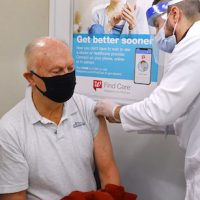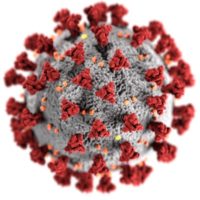Q. Are vaccinated and boosted people more susceptible to infection or disease with the omicron variant than unvaccinated people?
A. No. Getting vaccinated increases your protection against COVID-19. Sometimes, certain raw data can suggest otherwise, but that information cannot be used to determine how well a vaccine works.
Issues: omicron variant
Early Data on Omicron
Post Comes to Premature Conclusions About COVID-19 Omicron Variant Severity
It’s not known yet whether the omicron variant causes more or less severe COVID-19 than the delta variant, although some preliminary indications suggest omicron infections might be milder. A Facebook post nevertheless claims, without evidence, that the “toxicity” of omicron is 5 times higher than delta and that its mortality rate is higher.
Post Makes Unfounded Claims About Omicron ‘Symptoms’ and COVID-19 Vaccines
Scientists are still learning about the omicron variant’s ability to spread or cause severe illness and the effectiveness of the current COVID-19 vaccines in fighting it. But a Facebook post misleadingly claims to list seven “symptoms” of the new variant, then suggests they are caused by the vaccines. The list actually refers to complications of COVID-19. Two of the listed conditions are rare adverse events associated with the vaccines.
Q&A on the Omicron Variant
On Nov. 24, South Africa told the World Health Organization that amid a recent increase in COVID-19 cases, it had identified a new variant — later named omicron — with a high number of mutations, raising concerns that it could spread more easily than other variants of the coronavirus. We’ll go through what we know so far about omicron.




